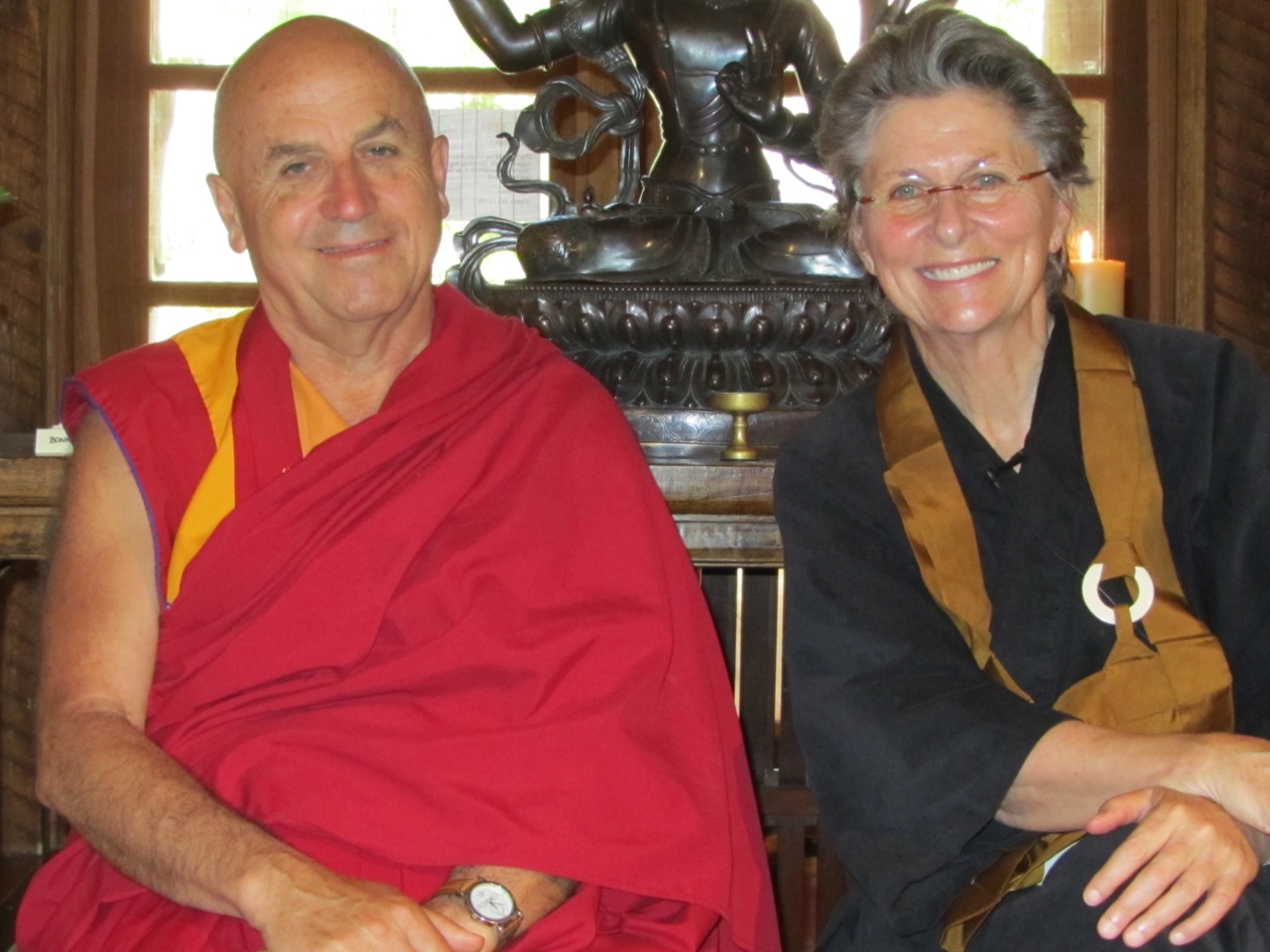
I recently attended a weekend at Upaya Zen Center in Santa Fe, New Mexico engaging in contemplative practice and dialogue exploring both the personal and the transpersonal challenges and possibilities of this question: How Can We Bring About a Compassionate Society?
The weekend was led by Matthieu Ricard, a genetic scientist trained at the Pasteur Institute and a Buddhist monk for the last 40 years, and Roshi Joan Halifax, a social scientist and Founder, Abbot and Buddhist teacher at Upaya. Both Ricard and Halifax are living examples of the answers to this question. Their lives are devoted to both meditative inner reflection and humanitarian social action.
During the weekend, we alternated periods of silence, reflection and meditation with dialogue and inquiry. As a group, we agreed that the solutions to our social and personal problems and challenges require our active engagement, not just reflection and rhetorical and philosophical musings. And more important, these ways of being must be introduced early in life and cultivated in our children allowing these values to be come embedded in the culture and woven into the fabric of our society. Ricard says, "Developing our own positive inner qualities is the best way to help others." Buddhist practices provide a very practical and systematic method for the development of an ethical and compassionate human being.

Roshi Joan Halifax teaches that, "Ultimately Buddhism is about relationships, with ourselves and with the world." She encourages us to use our own experience of pain and deep suffering to cultivate an awakened heart, a resilient and caring heart that is the expression of our own tender humanity, our own true nature. Buddhist practices offer us a method for cultivating our fullest potential as human beings.
The fundamental tenet of "Engaged Buddhism" is compassion in action: The fruit of contemplative and reflective practice is not an isolated self-absorbed person but rather an individual who gets up off the meditation cushion and is genuinely moved to make a difference in the world. That "world" includes the proximal intra-personal and inter-personal relationships of home and family and community as well as the larger context of society, commerce, natural resources, governance and environment. Buddhist practices ask us to examine how we treat ourselves, others and environment.
As the hard inner work of contemplative practice transforms an individual, the ethical and altruistic qualities developed in such practices spill out into life with each and every action and interaction. The great humanitarian elder teacher Joanna Macy encourages us to take the "World As Lover, World as Self" and behave accordingly -- with an informed and intelligent heart and with tenderness -- experiencing our lives with a sense of interconnectedness rather than separateness and isolation, so common in modern societies.
How do we do this? How do we create a compassionate and heartful culture? How do we transform and heal our world? Buddhism teaches that in order to transform our world, our families, our workplaces, our communities, we must transform ourselves through contemplative and meditative practices, through self inquiry and self reflection and through the cultivation of benevolent humanitarian and compassionate ethics and values. We must cultivate the capacity to be genuinely concerned about the welfare of others.
Ricard teaches that at first we may feel that our actions are inauthentic, contrived or fabricated, but if we "practice" new behaviors and new points of view, and experience firsthand the results of actions rooted in generosity and kindness and the wish to benefit others -- if we restrain our selfishness, aggression and anger, and make an effort to cultivate and grow gentleness, kindness and generosity -- our experience becomes our teacher; our experience informs us. Buddhism is very pragmatic. Try this; see what happens. Find out for yourself.
Where to start? First we start with ourselves. First we start with benevolence towards ourselves and others. We study. We contemplate. We reflect. We practice. Slowly, we mature and develop like a seed that will germinate and bear fruit if planted into good soil and watered and tended well.
The path to a compassionate society arises from the intentions and actions of individuals within that society. One small act of kindness and generosity ... one act of tenderness ... one act of selflessness ... each of these moments makes a difference. No act is too small. Strung together, each kind gesture becomes a pearl that makes a beautiful strand of loving kindness with which to encircle self and other, close family, friends, coworkers, community, strangers and world.
Dr. Nalini Chilkov has studied and practiced Buddhism for 38 years. Her path of service includes health and healing focused upon Integrative Alternative Cancer Care and Wellness Medicine.
To learn more about study and practice, teachings, writings and projects of Matthieu Ricard and Roshi Joan Halifax see the links below.